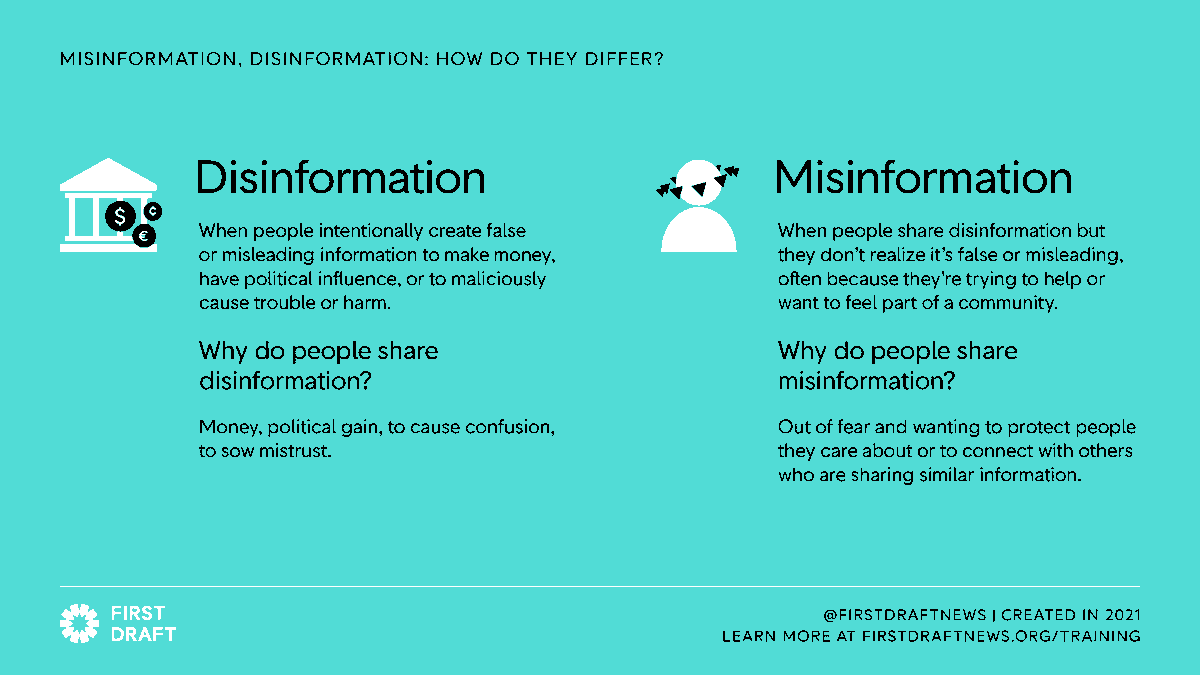We're in one of the last panels here at #ONA19 where @lamthuyvo, @BostonJoan, @LatoyaPeterson and @gvrkiran are gearing up to talk about "networked factions": Closed communities and online spaces
@lamthuyvo @BostonJoan @LatoyaPeterson @gvrkiran In her work studying white supremacists and other extremists, @BostonJoan says networked factions is a key term for understanding how certain groups work towards the same goals, even if they don't co-ordinate directly #ONA19
@lamthuyvo @BostonJoan @LatoyaPeterson @gvrkiran .@gvrkiran has been looking at cases of co-ordination on WhatsApp, particularly in India, and says "the interesting aspect is the scale and the international nature of how these operations go on" #ONA19
@lamthuyvo @BostonJoan @LatoyaPeterson @gvrkiran .@LatoyaPeterson has been tracking white supremacists online for most of her working life, but identified Gamergate as a networked faction phenomenon of different groups working together in a common goal #ONA19
@lamthuyvo @BostonJoan @LatoyaPeterson @gvrkiran "A lot of times you're seeing them digitise a certain playbook that's been in play for a very long time," says @LatoyaPeterson #ONA19
@lamthuyvo @BostonJoan @LatoyaPeterson @gvrkiran Growing up in the hardcore and punk movement, @BostonJoan saw white supremacists latch on to the skinhead movement to push their message. A similar thing is happening now but with gaming, she says, as a topic with passionate followers looking for meaning in life #ONA19
"People are taking groups that have formed naturally and are planting new ideas into them," adds @lamthuyvo, and that's a vital thing to remember when reporting on the issues #ONA19
"Because there's not a conversation around healthy white identity, these kids are susceptible" to radicalisation says @LatoyaPeterson #ONA19
@LatoyaPeterson In India and on WhatsApp, "these small networked factions create a narrative that is invisible if you don't look at it from a macro perspective... unless you're part of these groups you don't really get a sense of what is happening," says @gvrkiran #ONA19
@LatoyaPeterson @gvrkiran .@BostonJoan now discussing "memetic warfare", where people on 4chan work together to get seemingly innocuous phrases into the mainstream which originated in white supremacists movements #ONA19 

@LatoyaPeterson @gvrkiran @BostonJoan In India, "the most shared images on these WhatsApp groups we are tracking were actually doctored screenshots of TV news programs," says @gvrkiran as people are more likely to believe something from a valued source #ONA19
@LatoyaPeterson @gvrkiran @BostonJoan "The level of memetic warfare that people can do is huge and we observe this a lot in these groups" says @gvrkiran #ONA19
Three main lessons for journalists so far, says @lamthuyvo:
1) Understand a lot of the time co-ordinated attempts are trying to get your attention
2) Get empirical data and take a research approach
3)This is a beat, understand the main players #ONA19
1) Understand a lot of the time co-ordinated attempts are trying to get your attention
2) Get empirical data and take a research approach
3)This is a beat, understand the main players #ONA19
• • •
Missing some Tweet in this thread? You can try to
force a refresh







